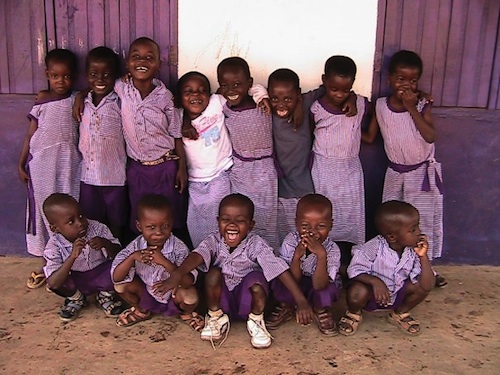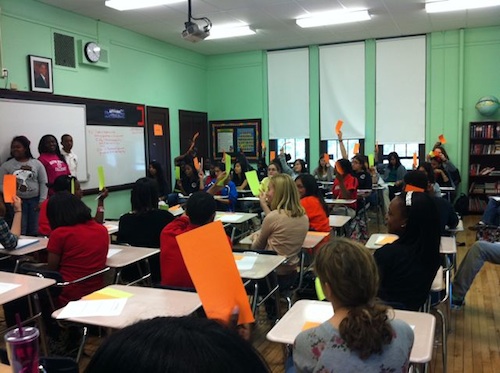Serendip is an independent site partnering with faculty at multiple colleges and universities around the world. Happy exploring!
ed250

Music Literacy and Connection
I want to expand on a definition of literacy that I’ve been working on through this class and my Music Education class. @jrbacch tweeted “Music a form of literacy? Music notes themselves, crescendos, learning how to read music, etc? #BMCed250” and I responded “thinking of literacy as access to a way of connecting w/ppl, ex cultural literacy, tech literacy makes music fit” [into a definition of literacy].
I spend a lot of my free time working on music for my a cappella group--I teach songs to the group and arrange music for the group to learn. When I’m deciding who will sing which voice part on any particular song, as well as while I’m leading rehearsal, I think a lot about who can read music. In auditions for my group, we ask if the auditioner can read music, because it’s a valuable skill. Within the context of a cappella, if I ask “can she read?” I’m asking about whether a singer can read music. And it does feel that fundamental to me. It is possible to be in the group and succeed without being able to read music, but it requires that I take a different approach in my teaching. I have to refer to notes’ position within the measure rather than their duration and name (e.g., “the altos need to watch the second-to-last note in measure 85--it should be longer and higher” instead of “altos: in measure 85, you’re jumping up a third, and it’s a half note, so be sure to hold it out”).

[ED250] Resources about Titagya Schools and Ghana
Titagya Web site http://titagyaschools.org/wordpress/
Leslie Dodson, Don't misrepresent Africa.
Chimamanda Adiche, The danger of a single story. http://www.ted.com/talks/chimamanda_adichie_the_danger_of_a_single_story.html

[ED250] Titagya Blog
A resource: the blog for the partnership between Titagya Schools and the Bryn Mawr/Haverford Education Program.
From the Titagya blog,
This web page is designed as a place to collect and generate ideas, experiences, and connections useful to developing a partnership between the Titagya program to build preschools and kindergartens in Northern Ghana and the Bryn Mawr/Haverford Education Program, at Bryn Mawr and Haverford Colleges, outside of Philadelphia Pennsylvania. To begin, the partnership is focusing on exploring cross-cultural curriculum development, with a focus on the themes of conflict resolution and the role of creativity, interaction, and play in learning.

We will not be actively contributing to this blog in ED250, but it is still a repository of learning from Bi-Co students in past Education classes.

[ED250] Syllabus
The syllabus "lives" on Google Docs. It may change throughout the semester, so check the online version for the most current information about assignments.
Click for the syllabus (opens in a new window).



